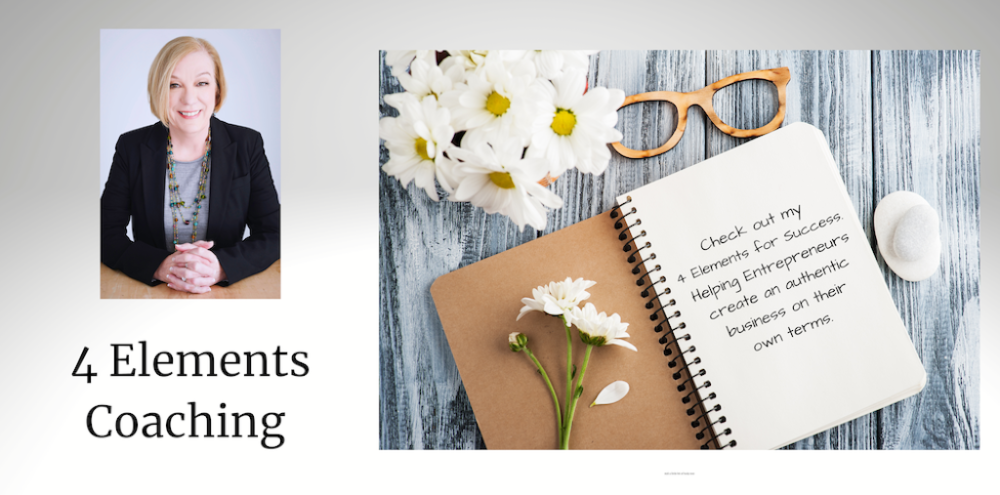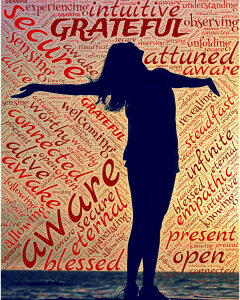There are days that I wake up with a burst of energy and excitement to begin the day. Some days start with deep breaths and a quiet resolve and curiosity to begin the morning routine that will lead to a busy day. Other mornings are underwhelming – I don’t feel anything except the need to wake up and step out of bed.
But some days begin a bit differently. I wake feeling very sensitive to the condition of my mind, body and spirit. I feel like I am slogging through mud to get out of that bed, and when I do, I hear the familiar internal refrain, “I don’t feel good!” that I have carried with me since childhood. (Yes, I’m aware that it should be I don’t feel well, but it’s always been repeated in the way I heard my mother say it.) I check in to see if there is some physical manifestation of this statement.
I quickly turn on the coffee, hoping that the caffeine will kick in quickly. I begin journaling and realize I am a bit unenthusiastic, or maybe even on the verge of tears about something. Sometimes I know what that something is and sometimes I don’t. It sort of settles into my chest and heart like a dense fog.
I look to see how many client appointments I have scheduled and wonder if I am able to coach them effectively. Should I cancel? Am I going to cry all day? Or just feel melancholy?
When I was a child, I had no idea what was happening to me and why I would cry at the drop of a hat one day and leap into the sunshine the next. I worried that it was a mental illness, since we had a family history of same. Sometimes I blamed myself for not doing God knows what to be a “normal human being.”
I now know that I am a “normal human being,” whatever that really means. And some days, I am just highly sensitive.
I’m not sure I would go so far as to say that I am an HSP (Highly Sensitive Person – there’s a test here if you decide you want to take it), though I’m not saying I don’t believe that this is a thing. I’m just not crazy about embracing labels that might limit my beliefs about myself. But I will say that there are some days when sensitivity seems to take a seat in the front row right alongside of me. It lingers and gently forces unexpected and expected tears and generally takes a bit of time to work its way back out.
Are there triggers? Probably. Today it may be the sentencing in the Nassar case that brings up so many memories of victims I’ve worked with who looked just like Jade, Ariana, Rachel and the others. My clients felt the same sadness and anger and overwhelm those girls are feeling now. And yes, it probably brings up my own memories of sexual assault and healing, of the desire for justice and the inability to find the strength to call for it.
But sometimes there aren’t triggers. It’s just my way of being for a time. Sensitivity is part of my nature. And I’ve learned that if I embrace it, I can become a better coach, friend, mentor, parent and partner. If I bury it, resentment and anger and grief can overwhelm me and I’m paralyzed by what is now something much bigger than it needed to be.
What do I do when I’m being sensitive?
1) I name it and claim it.
2) I create some space for myself to lean into it and let the voices and feelings tell me what I need to hear today. I give myself permission to be sensitive. What is the purpose sensitivity brings today? Sometimes it’s the same lesson and I just need a reminder or to see a new layer. And sometimes, it’s something alltogether new.
3) Sometimes yoga helps. I can claim it and sit into it during poses like Goddess pose or Child’s post. Or I can sit in the sunlight. Or whatever I feel led to do.

4) I accept that it takes as long as it takes. I don’t worry about it changing me or limiting me. It’s not wrong and there’s aren’t any rules. (Unless it manifests into something that changes my quality of life for too long. Then I ask for help.)
5) I affirm and embrace the best part of myself that is aware of who I really am – my authentic core being – and feel grateful that I can open up a container – an hour, a day, a week – to do what I can for myself because there’s no use being anything else. It takes too much work to stuff things down or make them go away when they are absolutely a part of who we are.
For today, for however long, I will accept being sensitive. I can coach my clients and answer emails. I can make chili for a cookoff tonight and join my team in helping to serve the community in this event. I can breathe a lot and engage in acts of self care and self love. I can write this out, which may in turn help someone else who is struggling to give voice to how they are not “feeling good.”
Being sensitive is one of the best qualities I can carry each and every day. If I can allow sensitivity to be what it is inside of me, I can use it to be the best me I can be.

